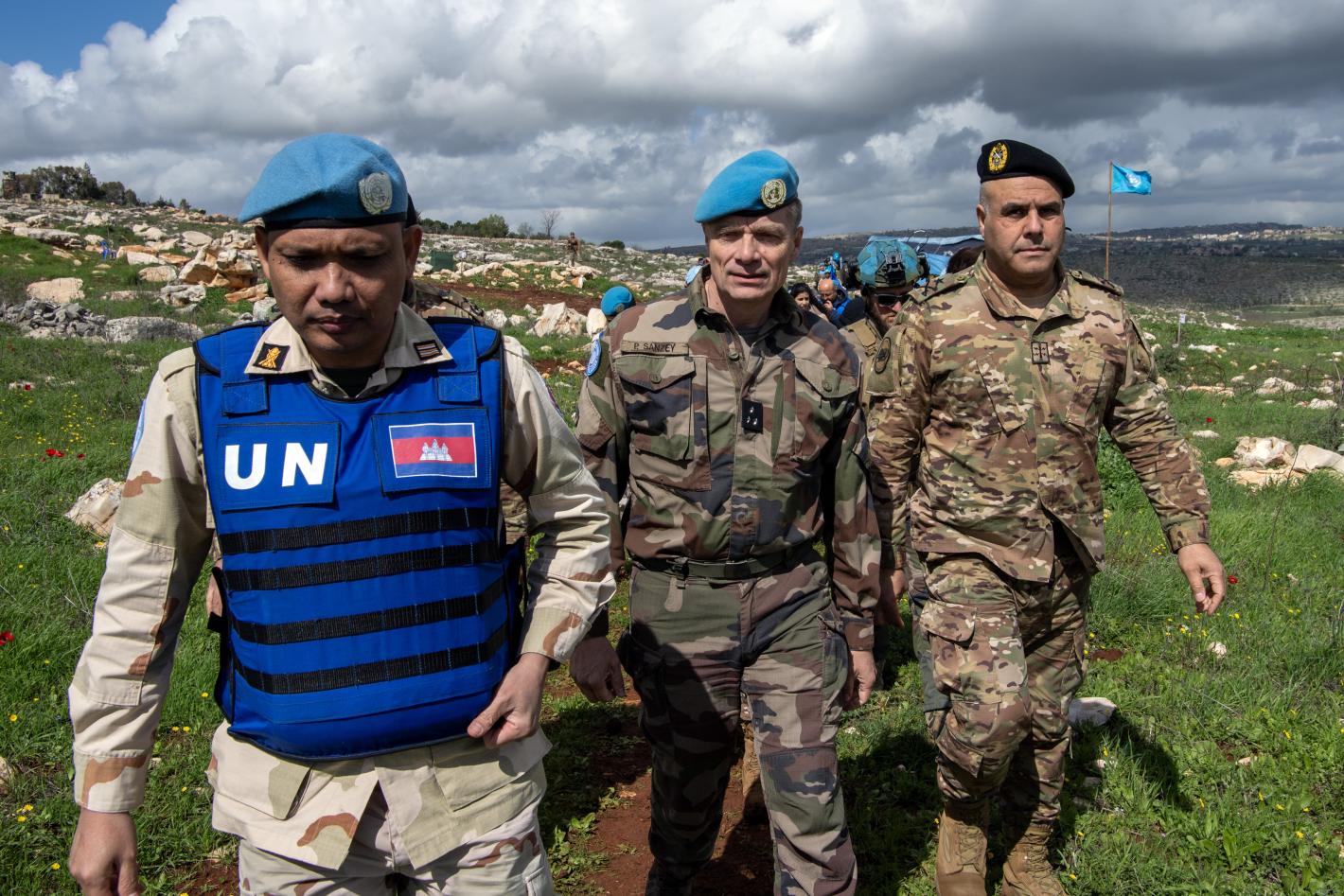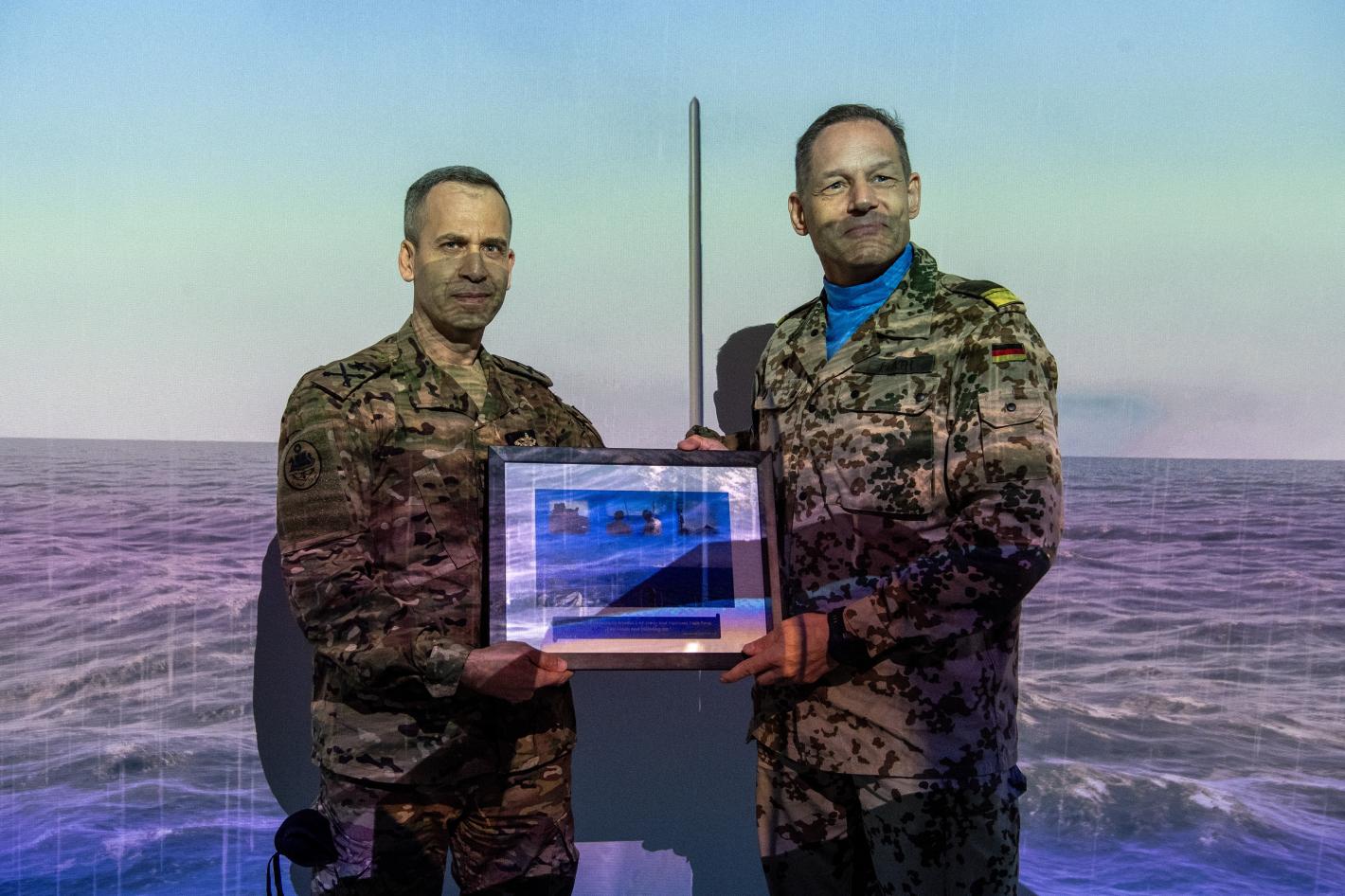By Captain Deepak Kumar
As a young army officer from India, when I joined UNIFIL as a military public information officer in a multinational, European-led Brigade and as a peacekeeper in a Middle Eastern country, I had varied expectations and impressions about the mission. As this was my first exposure away from the comfort of my battalion back in India, my impression of a UN mission was limited to the different ways of working, cultural divergences, language barriers, and synergy-related issues, to name a few.
However, within the first month of joining the mission in November 2019, my opinion and perception about multi-national peacekeeping gradually shifted. Through my own first-hand experience, I came to understand that all contingents are as professional and unique as the Indian army is. The work ethics and respect for customs and traditions of all peacekeepers representing different nationalities have been unanimously acknowledged.
Mutual cooperation while working towards a common goal of implementing the mission mandate has never created any communication barrier here. On the contrary, the diversity in the peacekeeping ranks has strengthened the workforce. Our team strongly gelled together by sharing the knowledge of each other's tactics, techniques and procedures (TTPs). Implementing them in unison has helped to develop and practice the most feasible, mutually-complementary TTPs for better results.
International legitimacy is one of the most important assets of a UN peace operation. The mission’s legitimacy is further enhanced by the composition of the mission, which includes around 45 nationalities. Legitimacy also reinforces the morale and spirit of the force.
In UNIFIL’s Sector East multinational Brigade, peacekeepers from Spain, Nepal, Indonesia, India, El Salvador, Kazakhstan, Serbia and Brazil serve together. The cohesiveness and coordination between them as a team has supported host communities in the area of operations to strengthen and consolidate the peace and stability that has lasted for more than 14 years. This in turn has lain the groundwork to sustain long-term peace, to include addressing root causes of conflict as well as by providing humanitarian support and assistance.
Together, we have unique strengths, including legitimacy, burden sharing, and an ability to integrate with host communities for implementing the mandate, the core of which is derived from the Security Council resolution 1701 (2006). A strong and effective partnership between UNIFIL and its troop-contributing countries have set strong examples by creating a melting pot of cultural vibrancy through cross-connection and mutual understanding for the last 14 years. This has made it possible for the peacekeeping operation in South Lebanon, over the years, to successfully implement its mandate and maintain peace and stability in the region.
In recent years, governments of the troop-contributing countries have also begun to promote peacekeeping as a suitable area for defence cooperation and military diplomacy. This step has shown positive results in favour of both peacekeeping missions around the globe and the participating nations’ cohesiveness and integration, irrespective of the physical distances. In a unique kind of south-south partnership, Indian troops have partnered with Kazakh troops in UNIFIL, with the battalions of two countries coming together under the leadership of an Indian commanding officer for the sole purpose of peacekeeping in south Lebanon. Countries participating in peacekeeping have engaged in multiple dialogues, joint military training and forums to promote the exchange of information and peacekeeping best practices. Underlying these activities has been the widely-shared idea that peacekeeping will contribute to global peace, stability and security.
Peacekeepers from different nationalities actively participate in all operational and administrative activities, as well as humanitarian undertakings in support the host communities. A blue-helmet peacekeeper is always recognized as an impartial international peace figure by the host community, irrespective of the nationality. These expectations make peacekeepers strive to be extra cautious, morally correct and judiciously upright while performing their duties, irrespective of the circumstances.
Since the beginning of the COVID-19 pandemic, and in order to deal with the unprecedented situation it triggered, UNIFIL peacekeepers have carefully reassessed their daily activities to avoid any risk of becoming a vector in the spread of the disease. Their adaptation was geared towards carrying out their mandated tasks while strictly adhering to all precautionary measures and supporting the host communities’ fight against the deadly virus. Mission leadership repurposed Quick Impact Projects and programmatic funding to help local authorities and institutions prepare for and cope with the virus.
As Deputy Public Information Officer of UNIFIL’s Sector East, I got opportunities to interact with journalists from local, regional and international media outlets. This has greatly helped my learning curve.
I realize that the deployment of a UN peacekeeping operation generates high expectations among local citizens. The bearing and behaviour of all personnel are expected to be of the highest order. Their actions must be in keeping with the important responsibilities entrusted to a UN peace operation. The behaviour of peacekeepers should meet the highest standards of professionalism, competence, and integrity. Here, I experienced that these traits are common among all of us and across nationalities.
Being a young 29-year-old officer, professionally, I have learned a lot from the UNIFIL work culture and gained experience working in the best multinational environment with cultural fusion across continents. Personally, I have met and made some good friends and memories for the life. I shall always retain and cherish the camaraderie, bonhomie and affiliation with highly professional military personnel from different nationalities working together in a common mission.






